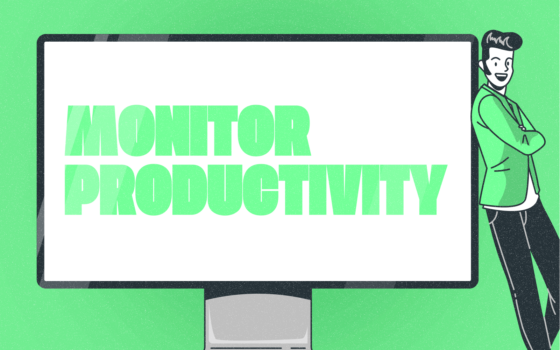Situational Interview
Understanding Situational Interviews
Situational interviews have become an increasingly popular tool in the modern recruitment landscape. These interviews present candidates with hypothetical scenarios they might encounter in the role they're applying for, asking them to describe how they would handle these situations. This approach allows interviewers to gain insights into a candidate's problem-solving skills, decision-making abilities, and overall fit for the position.
Unlike traditional interviews that focus on past experiences, situational interviews are forward-looking, presenting candidates with potential future scenarios. This method is particularly valuable for assessing how candidates might perform in real-world situations they haven't necessarily encountered before.
The Origins and Evolution of Situational Interviews
The concept of situational interviews emerged in the 1980s as a response to the limitations of traditional interview techniques. Psychologists and HR professionals recognized that past behavior wasn't always the best predictor of future performance, especially in rapidly changing work environments.
Over time, situational interviews have evolved to become more sophisticated and tailored to specific industries and roles. Today, they're often used in conjunction with other interview techniques to provide a comprehensive assessment of candidates.
Key Components of Situational Interviews
Situational interviews typically consist of several key elements:
- Scenario Presentation: The interviewer presents a hypothetical situation relevant to the job.
- Question Formulation: The candidate is asked how they would respond to or handle the given scenario.
- Response Analysis: The interviewer evaluates the candidate's answer based on predetermined criteria.
- Follow-up Questions: Often, interviewers will ask probing questions to gain deeper insights into the candidate's thought process.
The Benefits of Situational Interviews
Situational interviews offer several advantages over traditional interview methods:
1. Assessing Problem-Solving Skills
One of the primary benefits of situational interviews is their ability to assess a candidate's problem-solving skills in real-time. By presenting complex scenarios, interviewers can observe how candidates analyze problems, consider various factors, and formulate solutions.
This approach is particularly valuable for roles that require quick thinking and adaptability. For instance, a customer service representative might be asked how they would handle an angry customer who's demanding a refund for a non-refundable item.
2. Evaluating Decision-Making Abilities
Situational interviews provide a unique opportunity to evaluate a candidate's decision-making process. By asking candidates to explain their reasoning behind their proposed actions, interviewers can gain insights into their critical thinking skills and judgment.
This is especially important for managerial or leadership positions where decisions can have significant impacts on team performance and company outcomes.
3. Predicting Job Performance
Research has shown that situational interviews can be strong predictors of job performance. By simulating real work scenarios, these interviews give employers a glimpse into how candidates might perform in the actual role.
This predictive power is particularly useful for roles where past experience might not directly translate to future success, such as in rapidly evolving industries or for entry-level positions.
4. Reducing Bias
Situational interviews can help reduce certain types of bias in the hiring process. By focusing on how candidates would handle future scenarios rather than relying solely on past experiences, these interviews can level the playing field for candidates who may have non-traditional backgrounds or limited work history.
However, it's important to note that situational interviews are not entirely free from bias, and care must be taken to ensure that the scenarios presented are relevant and fair to all candidates.
Implementing Situational Interviews Effectively
While situational interviews can be powerful tools, their effectiveness depends largely on how they're implemented. Here are some key considerations for conducting successful situational interviews:
Designing Relevant Scenarios
The scenarios presented in situational interviews should be directly relevant to the role and reflective of real challenges the candidate might face. This requires a deep understanding of the position and the organization's needs.
HR professionals should work closely with hiring managers and team members to develop scenarios that accurately represent the job's demands. It's also important to update these scenarios regularly to reflect changes in the role or industry.
Standardizing the Process
To ensure fairness and consistency, it's crucial to standardize the situational interview process. This includes:
- Using the same scenarios for all candidates applying for a specific role
- Developing a rubric for evaluating responses
- Training interviewers on how to conduct situational interviews and assess responses
Standardization helps reduce subjectivity and allows for more accurate comparisons between candidates.
Balancing Complexity and Clarity
Effective situational interview questions should be complex enough to challenge candidates but clear enough to be easily understood. Overly complicated scenarios can confuse candidates and lead to responses that don't accurately reflect their abilities.
It's often helpful to provide context for the scenario, such as the company's current situation or relevant background information, to help candidates formulate more informed responses.
Incorporating Follow-Up Questions
Follow-up questions are a crucial component of situational interviews. They allow interviewers to dig deeper into a candidate's thought process and explore alternative approaches.
Examples of effective follow-up questions include:
- "What factors did you consider when making that decision?"
- "How would you handle the situation if [additional factor] was involved?"
- "What potential challenges do you foresee with your approach?"
Common Pitfalls and How to Avoid Them
While situational interviews can be highly effective, there are several common pitfalls that organizations should be aware of:
Over-Reliance on Hypothetical Scenarios
While situational interviews focus on hypothetical scenarios, it's important not to rely on them exclusively. Combining situational questions with behavioral questions (which focus on past experiences) can provide a more comprehensive assessment of a candidate.
A balanced approach might involve asking candidates how they would handle a hypothetical situation, followed by a request for an example of how they've handled similar situations in the past.
Failing to Consider Cultural Differences
Situational interviews can sometimes be biased towards certain cultural norms or expectations. What's considered an appropriate response in one culture might be viewed differently in another.
To mitigate this, ensure that scenarios are culturally neutral and that interviewers are trained to recognize and appreciate diverse approaches to problem-solving.
Overlooking the Importance of Context
Candidates may struggle to provide meaningful responses if they lack context about the organization or role. Providing sufficient background information is crucial for fair and effective situational interviews.
Consider sharing relevant details about the company culture, team dynamics, or industry challenges to help candidates formulate more relevant and insightful responses.
Evaluating Responses in Situational Interviews
Assessing candidates' responses in situational interviews requires a structured approach. Here are some key factors to consider:
Analytical Skills
Evaluate how well the candidate breaks down the problem and considers various aspects of the situation. Look for evidence of critical thinking and the ability to identify key issues.
Creativity and Innovation
Assess the candidate's ability to think outside the box and propose innovative solutions. While adhering to best practices is important, the capacity to bring fresh perspectives can be invaluable.
Ethical Considerations
Pay attention to how candidates navigate ethical dilemmas within the scenarios. Their responses can provide insights into their values and integrity.
Communication Skills
Evaluate how clearly and confidently candidates articulate their thoughts. The ability to explain complex ideas simply is often crucial in professional settings.
Alignment with Company Values
Consider how well the candidate's proposed actions align with the organization's values and culture. This can be a strong indicator of cultural fit.
Integrating Situational Interviews into the Hiring Process
To maximize the benefits of situational interviews, it's important to integrate them effectively into the overall hiring process. Here are some strategies:
Use as a Screening Tool
Situational interviews can be used early in the hiring process to screen candidates. Short, scenario-based questions can be incorporated into initial phone screenings or video interviews to quickly assess a candidate's potential fit.
Combine with Other Interview Techniques
For a comprehensive assessment, combine situational interviews with other techniques such as behavioral interviews, skills tests, and panel interviews. This multi-faceted approach provides a more complete picture of the candidate.
Tailor to Different Stages
Adapt the complexity and specificity of situational questions to different stages of the interview process. Initial interviews might include more general scenarios, while final rounds could feature highly specific situations relevant to the role.
The Future of Situational Interviews
As the workplace continues to evolve, so too will situational interviews. Here are some trends and potential developments to watch:
Virtual Reality Simulations
Advancements in virtual reality technology may allow for more immersive situational interviews, where candidates can be placed in virtual scenarios that closely mimic real work environments.
AI-Powered Analysis
Artificial intelligence could be used to analyze candidates' responses in situational interviews, providing deeper insights into their problem-solving approaches and potential fit for the role.
Increased Customization
As data analytics in HR becomes more sophisticated, we may see more personalized situational interviews tailored to individual candidates based on their backgrounds and the specific requirements of the role.
Conclusion
Situational interviews have emerged as a powerful tool in the modern recruiter's arsenal. When implemented effectively, they provide valuable insights into a candidate's problem-solving skills, decision-making abilities, and potential job performance.
However, like any interview technique, situational interviews are not without their challenges. They require careful planning, standardization, and integration with other assessment methods to be truly effective.
As the workplace continues to evolve, situational interviews will likely adapt and incorporate new technologies. HR professionals who master this technique and stay abreast of its developments will be well-equipped to make informed hiring decisions in an increasingly complex and dynamic job market.
Ultimately, the goal of situational interviews remains constant: to identify candidates who can not only perform the job duties but also thrive in the unique environment of the organization. By presenting candidates with realistic scenarios and evaluating their responses holistically, employers can make more informed decisions and build stronger, more effective teams.


